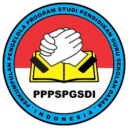DAMPAK POSITIF DAN NEGATIF SOSIAL MEDIA TERHADAP PERUBAHAN SOSIAL ANAK
DAMPAK POSITIF DAN NEGATIF SOSIAL MEDIA TERHADAP PERUBAHAN SOSIAL ANAK
DOI:
https://doi.org/10.35568/naturalistic.v1i2.5Keywords:
Dampak sosial media, hubungan sosial anak, sosial media, usia sekolah dasarAbstract
Children of primary school age today is learning quickly in The use of technological devices that many adult people use such as a mobile phone or laptop connected to the Internet network so it’s provide easy access to an incredible wide world to a variety of sites and applications that are provided in free of charge, Social media technologies indicate social change among children of primary school age in terms of social activities or relationships between human beings. The method of collecting data in this study were collected by observation at the school, in this case also has done an interview to the principal and students of class VI SDN Tugu 3 Gunung Java Cihideung Tasikmalaya, the number of students who were interviewed as a whole amounted to 65 people, this study obtained their personal indication of antisocial child because too preoccupied with social media being used.
Downloads
Downloads
Published
Versions
- 2020-07-06 (2)
- 2017-04-17 (1)
How to Cite
Issue
Section
License
Copyright (c) 2017 Copyright of Journal Naturalistic : Jurnal Kajian Penelitian Pendidikan dan Pembelajaran (e-ISSN:2548-8589, p-ISSN:2528-2921).

This work is licensed under a Creative Commons Attribution-ShareAlike 4.0 International License.
Copyright of Journal Naturalistic : Jurnal Kajian Penelitian Pendidikan dan Pembelajaran (e-ISSN:2548-8589, p-ISSN:2528-2921).
Open Access Policy
This journal provides immediate open access to its content on the principle that making research freely available to the public supports a greater global exchange of knowledge.
This journal is open access journal which means that all content is freely available without charge to users or / institution. Users are allowed to read, download, copy, distribute, print, search, or link to full text articles in this journal without asking prior permission from the publisher or author. This is in accordance with Budapest Open Access Initiative.










